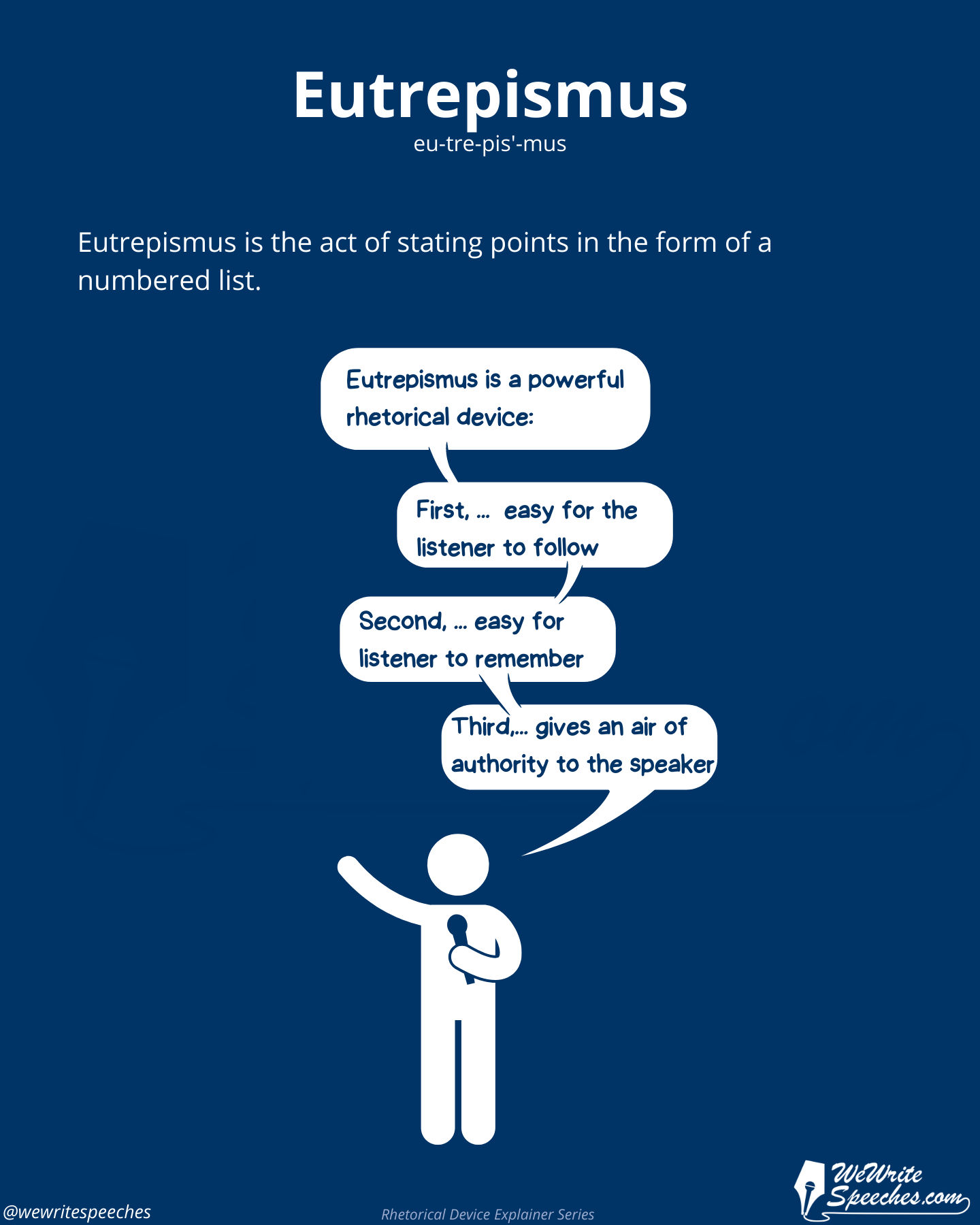Rhetorical Device: Eutrepismus
Eutrepismus is the act of stating points in the form of a numbered list. It is a technique that almost every public speaker, no matter how inexperienced, will have used.
It is one of the simplest yet most useful rhetorical devices, and it is popular for four reasons. First, it forces clarity which makes it easy for the listener to follow the line of reasoning. Second, it makes it easy for the listener to remember the key points. Third, it demostrates that the speaker has thought about their subject matter and taken the time to structure it properly, which gives them an air of authority. Fourth, it imbues the speech with a sense of rhythm.
In the 1593 edition of his "The Garden of Eloquence" manual of appromimately 200 figures of speech, Henry Peacham points out the main risk of using eutrepismus. When parts are numbered, they can easily be forgottem, "as he that promised to expound the twelve articles of the Creed, and after could remember but nine."
Examples
There are three lies in America today that I want every one of you to be aware of.
The first lie is this: "I am entitled to one mistake."
...
The second lie is "it will never happen to me."
...
The third lie is this, and be careful that you understand this one. "I've got plenty of time."
...
J.C. Watts, "Three Lies"

The four Corner-stones of the foundations were laid long years ago. We read upon the first: "We demand for women education, for not a high school or college is open to her"; upon the second, "We demand for women religious liberty for in few churches is she permitted to pray or speak"; upon the third, "We demand for women the right to own property and an opportunity to earn an honest living. Only six, poorly-paid occupations are open to her, and if she is married, the wages she earns are not hers"; upon the fourth, "We demand political freedom and its symbol, the vote." Carrie Chapman Catt, "The Crisis" (7 September 1916)
There have been recent reports that Russia’s limited military gains in eastern Ukraine are sparking concerns in Europe and beyond about the war’s trajectory, so let me be clear about a few things.
First, Ukraine is defending itself with extraordinary courage and resilience, and Russia has already lost. ...
Second, we’re raising the costs on Russia to bring the war to an end more swiftly through unprecedented sanctions and export controls. ...
Third, we’re working to end global dependence on Russian energy, which the Kremlin has used as a tool of coercion for far too long. ...
Fourth, we’re strengthening our own defenses. ... Antony J. Blinken, "Press Conference in Germany" (24 June 2022)
I want to be straight with you: there will be no return to the “old normal” for the foreseeable future. But there is a roadmap to a situation where we can control the disease and get on with our lives. But this is going to require three things:
First , a focus on reducing mortality and suppressing transmission.
Second, an empowered, engaged community that takes individual behavior measures in the interest of each other.
And third, we need strong government leadership and coordination of comprehensive strategies that are communicated clearly and consistently. Tedros Adhanom Ghebreyesus, "World Health Organization Opening Statement on COVID-19" (13 July 2020)
